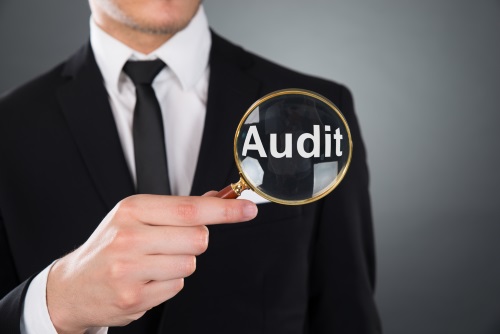According to Law 162/2017 on the statutory audit of the annual financial statements and the consolidated annual financial statements and amending some normative acts (with subsequent amendments and completions), the entities whose annual financial statements are subject to the statutory audit are obliged to organize and ensure exercising the internal audit activity according to the legal framework.
According to the provisions of art. 160, para. (2) of the Companies Law no. 31/1990, the entities whose financial statements are audited, according to the law or the decision of the shareholders, will organize the internal audit according to the norms elaborated by the Chamber of Financial Auditors from CAFR.
According to the provisions of art. 34 of Law 82/1991, the annual financial statements of legal entities of public interest are subject to financial audit, which is performed by financial auditors, authorized natural or legal persons, in accordance with the law.
It is important to note that these provisions are aimed at:
- subunits without legal personality in Romania, which belong to legal entities based abroad, except for subunits opened by companies resident in countries belonging to the European Economic Area, as well as parent companies that have the obligation to prepare consolidated annual financial statements, according to accounting regulations applicable;
- the annual financial statements prepared by the entities that have this obligation according to their specific legislation;
- the annual financial statements prepared in order to carry out the merger, division or liquidation operations, if the respective persons have the obligation to audit the annual financial statements.
According to point 563 paragraph (1) of the Accounting Regulations, the annual financial statements of medium and large entities, as well as of national companies / companies, companies with full or majority state capital and autonomous utilities are audited by one or more statutory auditors or audit firms.
In paragraph (2) it is mentioned that the entities that, at the balance sheet date, exceed the limits of at least two of the following 3 criteria are also subject to audit
- a) total assets: 16,000,000 lei;
- b) net turnover: 32,000,000 lei;
- c) the average number of employees during the financial year: 50.
The audit obligation for entities referred to in this paragraph shall apply when they exceed those limits in two consecutive financial years.
Also, the respective entities are exempted from the obligation to audit the annual financial statements if the limits of two of the three mentioned criteria are not exceeded in two consecutive financial years.
Internal Audit activity:
In Romania, the internal audit is performed in accordance with the Norms elaborated by the Chamber of Financial Auditors (CAFR).
According to art. 23 of OUG no. 75/1999 regarding the financial audit activity – republished, with subsequent amendments and completions, the persons responsible for organizing the internal audit activity, coordinating the works / commitments and empowered to sign the internal audit reports must have the quality of financial auditor.
According to the provisions of the Internal Audit Norms elaborated by CAFR, the internal audit is an independent and objective activity that gives an entity an assurance regarding the degree of control over the operations, guides it to improve its operations, and contributes to adding value. .
The internal audit helps this organization to achieve its objectives by evaluating, through a systematic and methodical approach, its processes of risk management, control, and governance of the organization, and making proposals to strengthen their effectiveness.
Internal audit is the activity of objective examination of all the activities of an organization in order to provide an independent assessment of risk management, control and its management processes.
It can be exercised both by people inside the organization in question and by people outside it.
The purpose of the internal audit is:
- to verify if the activity of the organization is in accordance with its policies, programs and management, according to the legal provisions;
- to evaluate how adequate are the financial and non-financial controls ordered by the management of the economic entity, and if they are applied and to what extent, in order to increase the efficiency of the organization’s activity
- to evaluate how adequate are the financial and non-financial information provided to the management of the economic entity, in order to know the realities of the respective organization;
- to protect the balance sheet and off-balance sheet elements of the organization and to identify methods to prevent fraud and loss of any kind.
It is important to mention that, although Law no. 162/2017 stipulates the obligation to organize and ensure the exercise of the internal audit activity, the Companies Law no. 31/1990, the accounting law 82/1991 and neither OUG 75/1999, do not provide sanctions for organizing this type of activity.
Instead, Law no. 672/2002 on internal public audit provides for sanctions for public entities.

